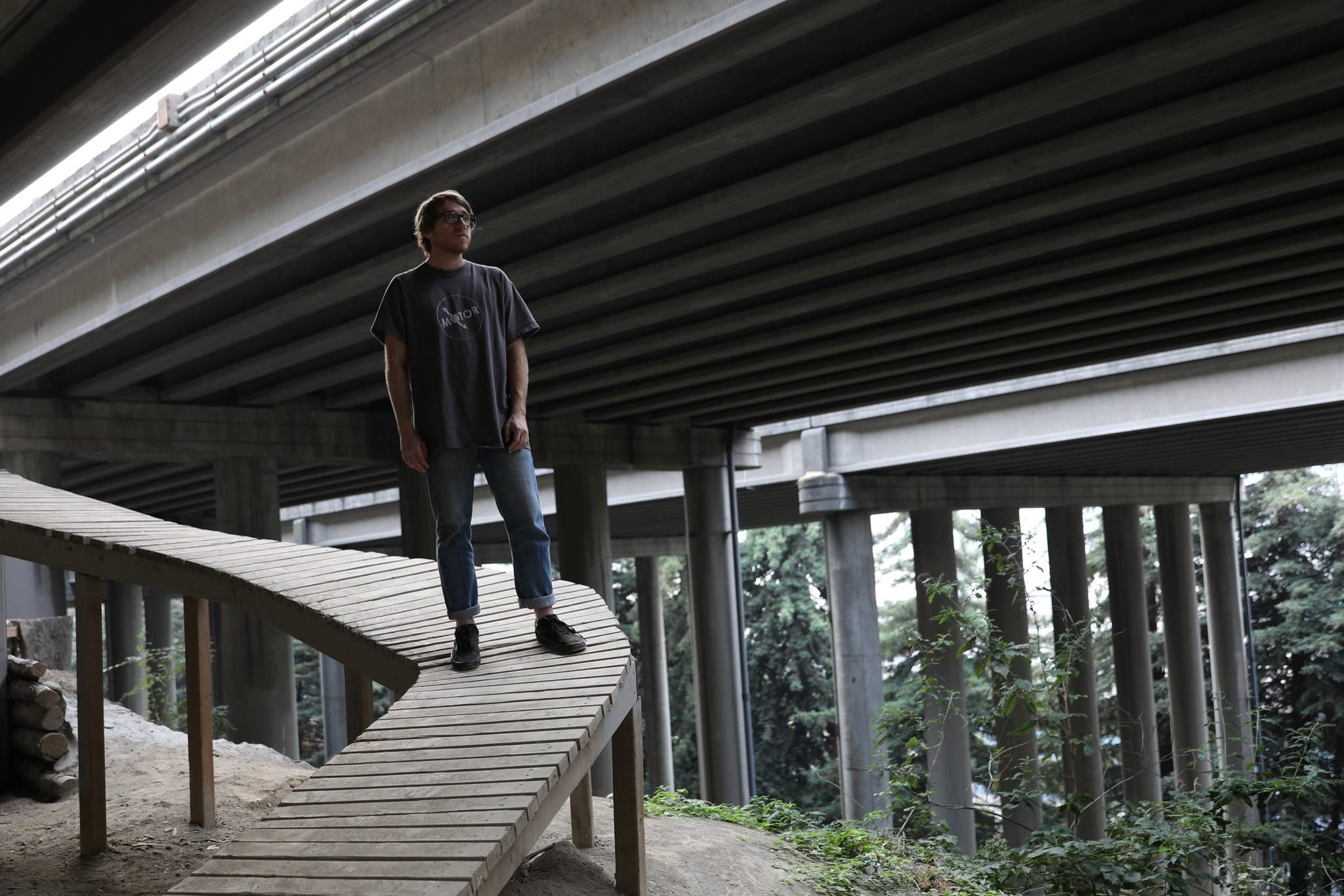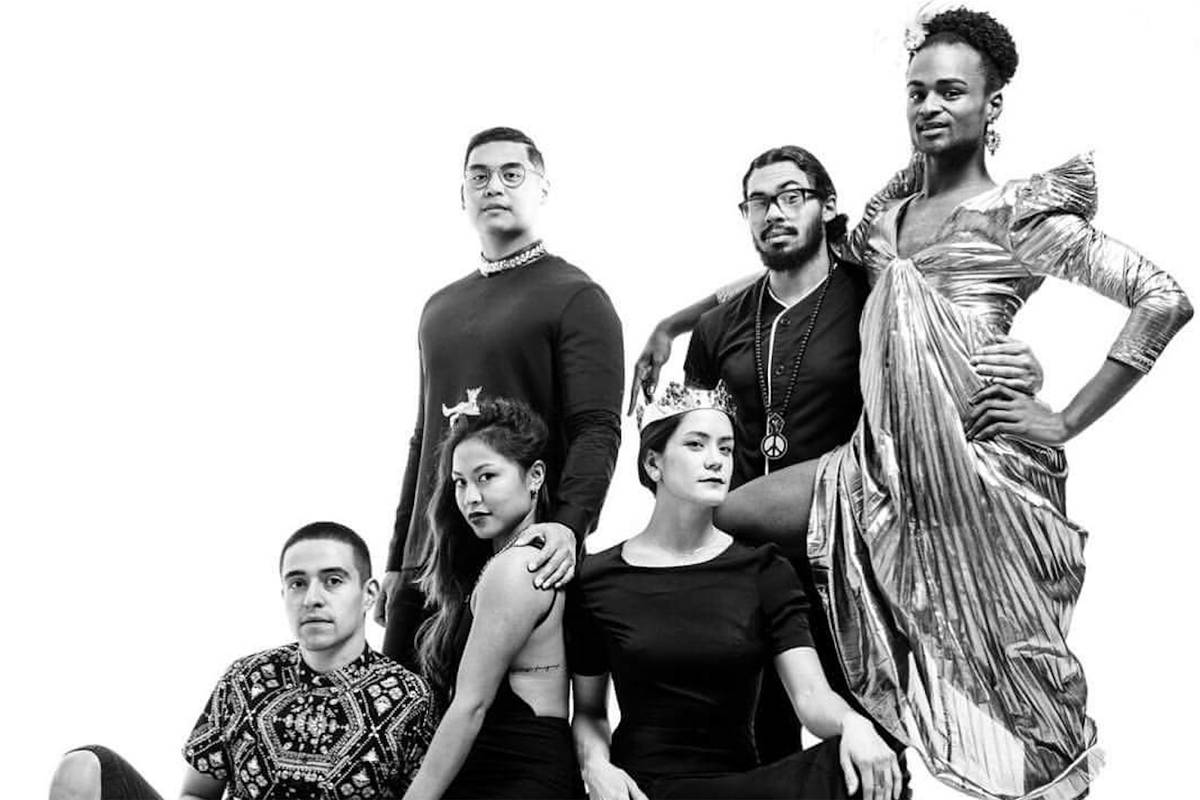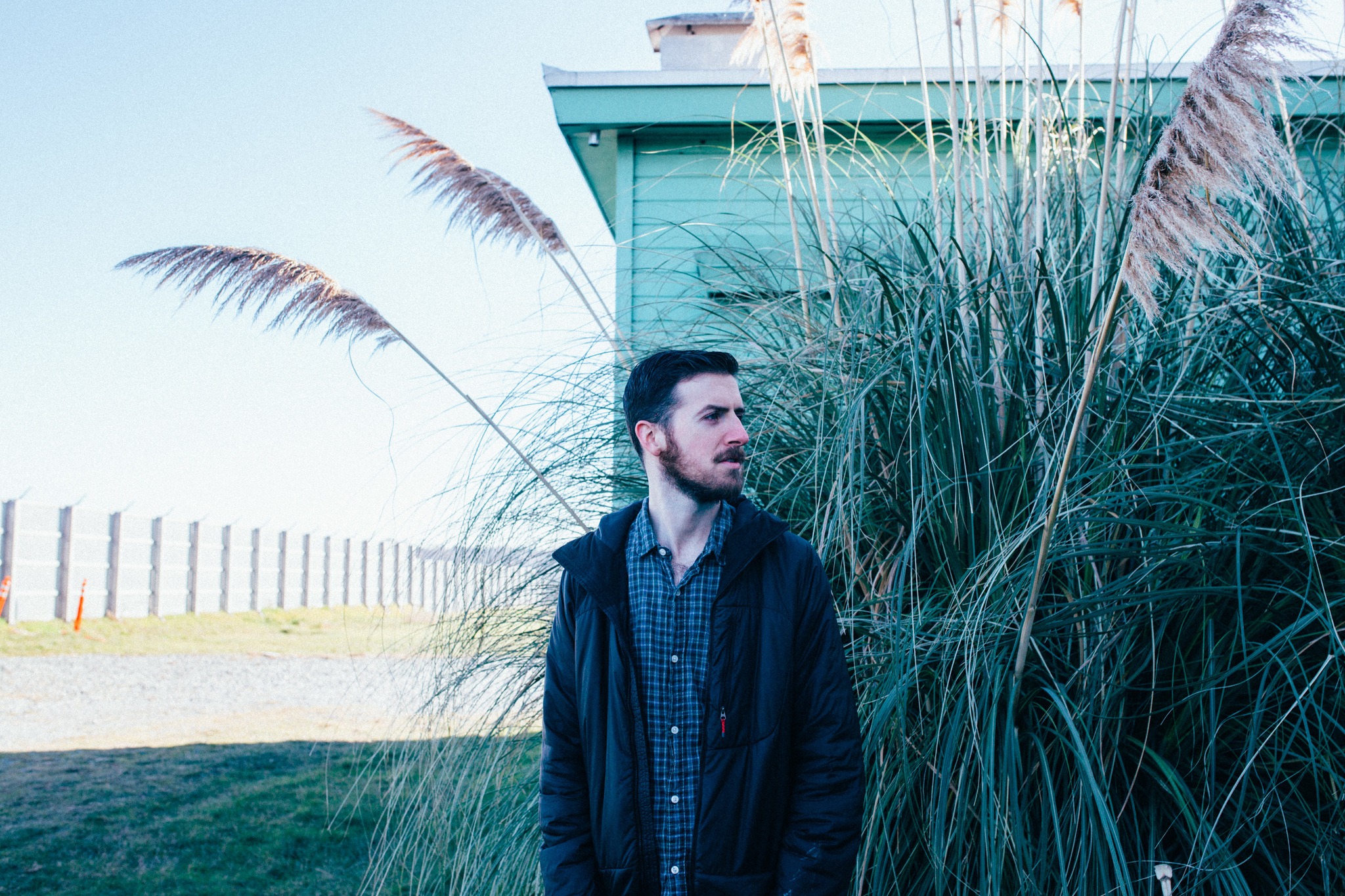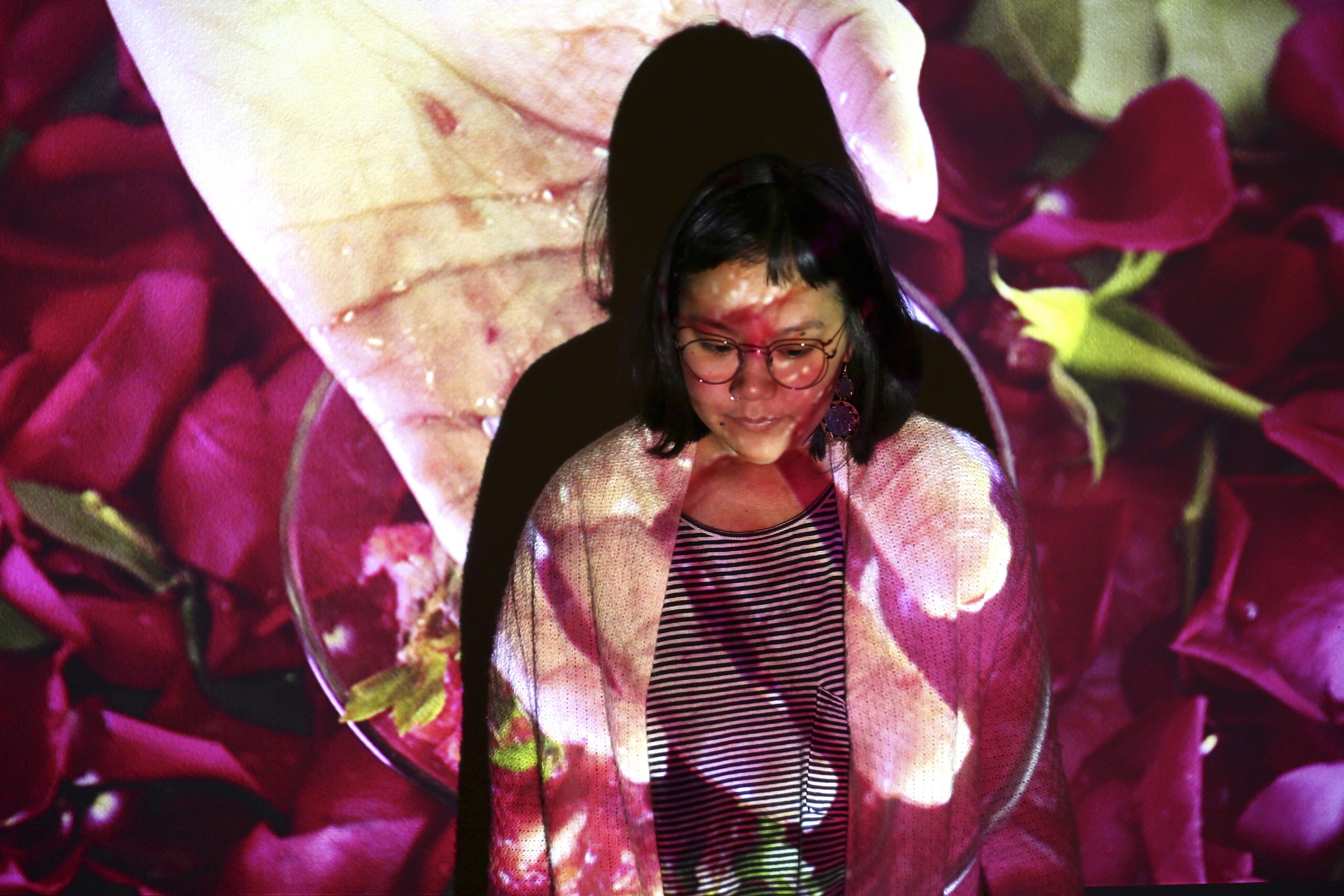Making music is labor. For Seattle techno producer Madi Levine, who performs as IVVY, it is a labor of both obsession and kindness.
Levine creates techno that’s imaginative yet stalwart and “inspired by the hours of 2 to 7 a.m.” They’ve been lauded locally and across the continent for their hellfire live performances, and their new release Safe Within, on the Transfusions imprint of Seattle’s Medical Records, offers four diamond-cut bangers that will inject energy into clubs and headphones alike. IVVY sounds the way it feels to be drawn out into the ocean, pummeled by wave after tireless wave, only to emerge clean. Like the ocean, IVVY’s tracks are full of power and peace in rhythm.
Every artist’s hope is that their music is good enough to justify the labor behind it. Devoting yourself to a craft is a tremendous risk—one that can pay off only in the experience you create for other people.
“It’s a very lonely process,” says Levine. “I was watching this interview with [New York house producer and DJ] Levon Vincent a long time ago, and he talks about how, if someone likes your music, it’s a really big deal because it’s like a value added to the days you spent alone trying to make something that’s worth that time.”
Levine spends hundreds of hours alone in the studio. They say they think about music and recording all the time—in their head, they’re always working. And they give up more than just time. For music, Levine has sacrificed stability, a steady income, and whole months of their life on grueling tours. Even the shows themselves are labor.
“Playing live is super-exhausting,” says Levine, one of those rare live performers who can sustain hours of dance-floor heat. “I don’t even understand why it’s so exhausting. I’m just like, How did this happen? It’s not like two hours is that long … It’s a whole physical experience, and by the time it’s over I’m basically dead and drenched in my own sweat.”
“I have no complaints, though,” they continue. “I’m happy to be dead tired, I’m happy to sleep on someone’s floor and get on a plane four hours later. I don’t care, it’s fine. I want to be totally clear that I’m not like, ‘Woe is me, wah wah,’ when I get to do the thing I always wanted to do with my life.”
Levine grew up in Chicago. Their father was a professional musician who made roots, blues, and gospel music. “I was very predisposed to making music for a career,” says Levine. “My dad taught me everything I know in that regard.”
Levine got their first drum kit at age 7. They say that today they have to dance while they’re performing because, after years of drumming, they can’t keep time unless their body is moving. They moved onto strings and then acquired a cheap Boss sampler in 1997. (They only just recently parted with this sampler—says Levine, “I was hard up for money and I was about to leave town for a tour, and I sold it because, you know, you got to continue the grind.”)
But for someone who grew up steeped in musicality, it’s actually the lack of musicality that draws Levine to techno.
“Dance music is very brash, and it doesn’t ask you to enjoy it,” says Levine. “There’s no hooks, or no songwriting structures that are put in place to make you think, Oh, this is good, I’m going to buy this and put it on in my car. It’s very intentional and it’s not for you if you don’t want to experience it, and it’s not made for some sort of indulgent listening experience.”
When I suggest that dance music provides a physical rather than an intellectual experience, Levine says, “Exactly. It’s not songwriting music, and I think what gets people off on it is that on a certain level, after a certain number of hours, it becomes an intellectual experience.”
Another interesting contrast is that, for someone whose music has been described as battering, pummeling, and abrasive, Levine is the ultimate softy. It’s a kind of techno trope too rarely true: a formidable, frenzied performer who is a kind ally to anyone in their community.
“The whole point of it is a giant shared experience,” says Levine, who cites the way a dance track is designed to be minimal enough that another song can play on top of it during a transition. “That idea is community-based in itself, because you have to leave space for someone else to be a part of the track.”
“I would hope that for everybody it’s an egoless experience,” they continue. “I think if it’s ego-oriented, you’re in the wrong place. You can go be a rock star if that’s what you want to do.”
Levine remembers a night that epitomizes why they do this. “I accidentally got to close out this festival after-hours party in Boston,” they say. Levine was originally scheduled to play at 3 a.m., opening for New York DJ Katie Rex, but she asked them to switch slots because she was leaving for Europe right after the show. Levine was supposed to play for two hours, but wound up playing from 6 to 9 in the morning.
“I’d never played that long before, and had never gotten to play for a room of people that late in the day before. It was incredible. I felt like I was at a party that I would have wanted to go to, like that one of our friends would put on, but then I’d have this moment where I’d be like, Oh, you’re playing right now. I felt like I was watching someone else doing it. I didn’t really believe it until it was over…
“I think about that night a lot, when I have really bad days or really shitty gigs or I make something I hate, that’s my thing that keeps me going.”
If one measures the return on labor with the satisfaction taken from it, Levine’s a good investor. “I feel like a lot of my life is taking a risk, but I don’t want to glorify that,” they say. “It doesn’t make me the shit that I’m broke because I decided to be. I’m constantly riddled with anxiety about having enough money, but I’ve never been happier … I think it’s the coolest thing I’ve ever gotten to do in my whole life.” Safe Within (MRT-007), out Fri., Sept. 29, on Transfusions. music@seattleweekly.com








